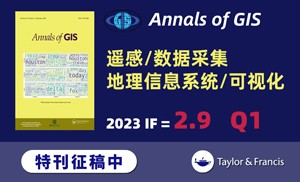Journal of Environmental Science and Health, Part A ( IF 1.9 ) Pub Date : 2022-04-22 , DOI: 10.1080/10934529.2022.2060021 Aline Christine Bernegossi 1 , Bárbara Luíza Souza Freitas 1 , Gleyson B. Castro 1 , Jéssica Pelinsom Marques 2 , Liliane Folli Trindade 3 , Mara R. de Lima e Silva 4 , Mayara C. Felipe 1 , Allan Pretti Ogura 3
Abstract
Safe drinking water’ supply is an essential service and depends directly on the water treatment that produces water treatment sludge (WTS) as a product, whose final destination varies and remains a challenge. The ecotoxicity assessment of the WTS address the ecological implications of the WTS disposal but these information is still scarce in the literature. In this sense, we did a systematic review of the ecotoxicological studies on WTS using databases from six platforms. From the 785 papers recovered; 16 studies were eligible and showed the ecotoxicity assays’ applicability to evaluate the WTS. We discussed WTS ecotoxicity considering sample characterization; terrestrial and aquatic toxicity assays; and WTS challenges. WTS proved to be a highly heterogeneous matrix composed mainly of coagulant precipitates, including Al and Fe. Studies lack consensus concerning the most representative/sensitive species for evaluating WTS’ toxicity. Crustaceans were the most studied aquatic group, although algae species were more sensitive. Besides, soil ecotoxicity assessed only plant growth, and a single study used the earthworm. Even papers used bioassays to indicate the recycling WTS’ feasibility, there is a lack of specific legislation regarding the WTS reuse. Furthermore, are necessary a regulation for WTS management that involves an ecological risk assessment.
中文翻译:

水处理污泥对陆地和水生生物群的毒性的系统评价:最新技术和管理挑战
摘要
安全饮用水供应是一项基本服务,直接依赖于产生水处理污泥 (WTS) 作为产品的水处理,其最终目的地各不相同,仍然是一个挑战。WTS 的生态毒性评估解决了 WTS 处置的生态影响,但这些信息在文献中仍然很少。从这个意义上说,我们使用来自六个平台的数据库对 WTS 的生态毒理学研究进行了系统评价。从回收的 785 篇论文中;16 项研究符合条件,并显示了生态毒性测定对评估 WTS 的适用性。我们讨论了考虑样品表征的 WTS 生态毒性;陆地和水生毒性试验;和 WTS 挑战。WTS 被证明是一种高度异质的基质,主要由混凝沉淀物组成,包括 Al 和 Fe。研究缺乏关于评估 WTS 毒性的最具代表性/敏感物种的共识。甲壳类动物是研究最多的水生动物,尽管藻类更敏感。此外,土壤生态毒性仅评估植物生长,一项研究使用了蚯蚓。即使是论文使用生物测定来表明回收 WTS 的可行性,也缺乏关于 WTS 再利用的具体立法。此外,还需要一项涉及生态风险评估的 WTS 管理法规。即使是论文使用生物测定来表明回收 WTS 的可行性,也缺乏关于 WTS 再利用的具体立法。此外,还需要一项涉及生态风险评估的 WTS 管理法规。即使是论文使用生物测定来表明回收 WTS 的可行性,也缺乏关于 WTS 再利用的具体立法。此外,还需要一项涉及生态风险评估的 WTS 管理法规。









































 京公网安备 11010802027423号
京公网安备 11010802027423号